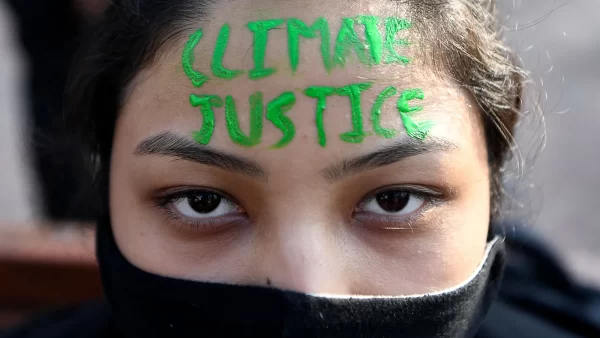Climate justice is a concept that aims to address these inequalities and ensure that climate action is fair, inclusive, and considers the needs and rights of all individuals and communities. In this listicle, we will delve into the importance of climate justice and explore various aspects of this critical topic.

Understanding Climate Justice:
Climate justice encompasses the idea that the burden of climate change and the benefits of climate action should be shared equitably. It recognizes the historical responsibility of developed nations for the majority of greenhouse gas emissions and advocates for the inclusion of marginalized groups, indigenous peoples, and vulnerable populations in decision-making processes.
Recognizing Disproportionate Impacts:
Climate change exacerbates existing inequalities and disproportionately affects the most vulnerable communities. Low-income neighborhoods, indigenous communities, and coastal regions are particularly susceptible to the impacts of rising temperatures, sea-level rise, extreme weather events, and resource scarcity. Climate justice calls for targeted action to support these communities and ensure their resilience.
Bridging the Global North-South Divide:
The Global North has historically contributed the most to greenhouse gas emissions, while the Global South faces the brunt of climate change consequences. Climate justice seeks to bridge this divide by acknowledging the differential responsibilities and capabilities of nations and promoting international cooperation, technology transfer, and financial assistance to help developing nations adapt to and mitigate climate change.
Intersectionality and Climate Justice:
Climate justice recognizes the inter connectedness of various social justice issues, such as gender inequality, racial discrimination, and economic disparity. It emphasizes the importance of an intersectional approach that addresses these multiple dimensions of inequality, ensuring that climate solutions are inclusive and do not perpetuate further injustices.
Indigenous Rights and Traditional Knowledge:
Indigenous peoples have long-standing relationships with their lands and possess invaluable traditional knowledge about sustainable practices and biodiversity conservation. Climate justice entails respecting and protecting the rights of indigenous communities. Including their rights to land, self-determination, and cultural heritage, while involving them in climate decision-making processes.
Just Transition and Green Jobs:
As societies transition to low-carbon economies, it is crucial to ensure a just transition for workers and communities dependent on carbon-intensive industries. Climate justice emphasizes the creation of green jobs, providing retraining and support for affected workers. And ensuring that the benefits of the clean energy transition are distributed equitably.
Environmental Racism and Climate Justice:
Environmental racism refers to the disproportionate exposure of communities of color to pollution and environmental hazards. Climate justice addresses this issue by advocating for equitable environmental protection and climate policies. That do not disproportionately burden marginalized communities.
Youth Activism and Inter generational Equity:
Young people are at the forefront of the climate justice movement, challenging action for a sustainable future. Climate justice recognizes the inter generational equity aspect, ensuring that the decisions made today do not compromise the rights and opportunities of future generations.

Legal and Policy Frameworks:
Climate justice requires the development of robust legal and policy frameworks at local, national, and international levels. This includes implementing human rights-based approaches to climate action, integrating climate justice considerations into environmental legislation. And supporting the participation of marginalized groups in decision-making processes.
Individual Actions for Climate Justice:
While systemic change is crucial, individuals can contribute to climate justice through personal choices. This may involve reducing carbon footprints, supporting sustainable businesses, advocating for climate justice in communities. And holding governments and corporations accountable for their environmental actions.
Conclusion:
Climate justice is a fundamental principle that strives for a fair and equitable response to the global climate crisis. By addressing historical inequalities, recognizing the diverse impacts of climate change, and involving all stakeholders. We can build a sustainable future that ensures the well-being and dignity of all people. It is through collective action and a commitment to climate justice that we can create a world that is resilient, just, and environmentally sustainable for generations to come.














